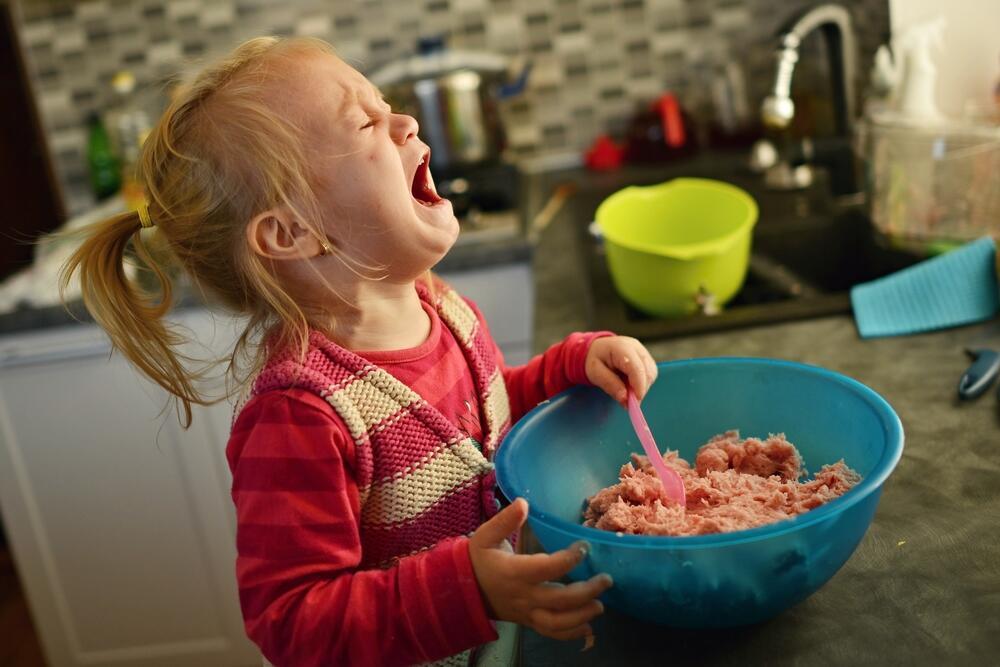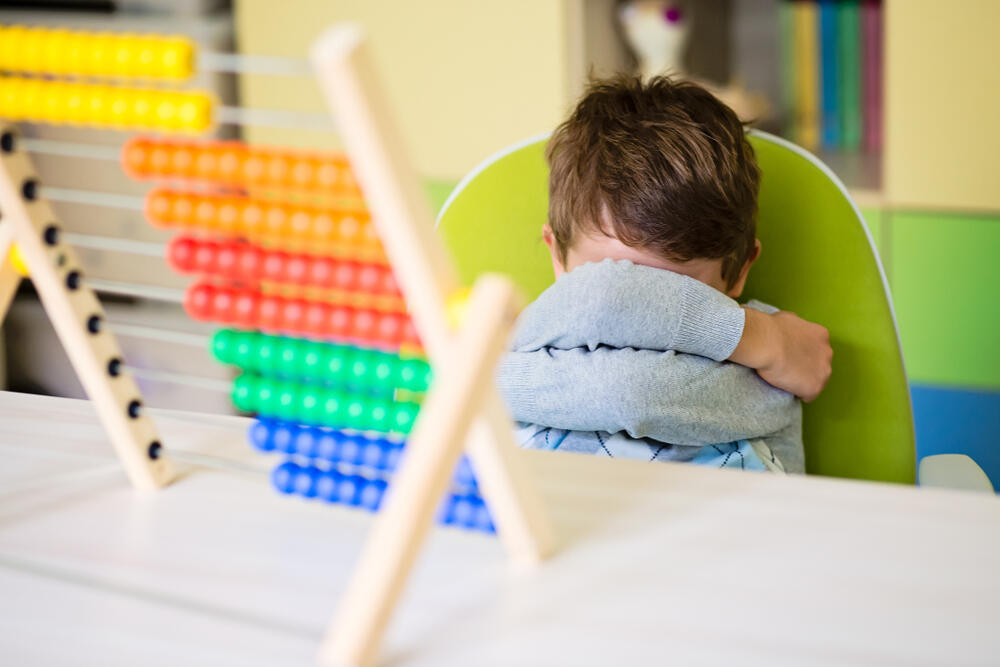Yotam, a six-and-a-half-year-old, uttered the words "I'm terrible at basketball. I want to quit the club" to his mother Daphne (note: names have been changed).
Other stories:
When she came to pick him up from his weekly practice, she asked, "What happened this time?" instantly regretting the way she phrased the question. It was clear to her that her choice of words would make her son feel like this was a recurring issue, which it was.
"You enjoy the club. The coach always praises you and you yourself say that you're really good," she tried to uplift him, and perhaps herself in the process.
"I used to love it when I could score a basket. But now, I don't enjoy it anymore. I'm not good at it anymore, and I want to quit," Yotam reiterated resolutely.
Daphne took a deep breath and braced herself for the familiar conversation that she's had with Yotam before. She knew that no matter what she said, he had already made up his mind.
This wasn't the first time Yotam had felt this way. It had happened in his judo class when he lost a fight, in his horse riding class when he couldn't get the horse to gallop faster, and in his painting class when he got frustrated with his artwork and threw it in the trash.
Despite her efforts to encourage him, he had lost his passion for these activities and was no longer willing to participate.
According to Daphne, her son Yotam is a perfectionist who becomes angry when he feels that his work doesn't meet the high standards he has set for himself. In the past, he would even cry and scream, and then ultimately give up on the task altogether.
Despite efforts to reassure him that making mistakes is natural and that the process is more important than the end result, Yotam remains resistant to this message and views his perceived failures as significant setbacks.
How does it manifest itself?
"This year, he started first grade, but compared to his sister who was already reading fluently after just a month and a half, he's been having some trouble with it. Even with fine motor skills, he finds it challenging. We've been in occupational therapy for over a year now, and while he's made great progress, he still gets frustrated when things don't turn out exactly as he expects.
"I can really relate to him though. I'm my own worst critic. Growing up, all my brothers were excellent, and anything below 90 was quite uncommon. My husband is the same way. However, we never scold our children for failing to do something. Our criticism is solely aimed at ourselves, and it's what has driven us to excel in our work."
Daphne's insight is spot on - striving for excellence and accomplishment can be a healthy pursuit. However, experts caution against the dangers of completely eliminating the possibility of failure and loss, and allowing an obsession with perfection to pervade daily life.
When perfectionism takes hold in a child, and every misstep - as insignificant as it might seem - is felt as a crushing blow to their self-esteem, it can have long-lasting repercussions, potentially leading to avoidance of future challenges and hindering personal growth.
In short, the quest for perfection should be tempered with the acceptance of imperfection as a natural part of the learning process.
Wanting to be perfect in a world that isn't
Dr. Yonatan Kushnir, a clinical psychologist renowned for his expertise in treating children and adults using a cognitive-behavioral therapy method, offers a profound insight into the nature of perfectionism.
According to him, it is not just about striving for excellence and outperforming others, but also about rigidly insisting that things must unfold precisely as desired, without any possibility of flexibility or compromise.
This tendency can manifest itself in various spheres of life, particularly in competitive fields like academics, social interactions, and extracurricular activities.
However, he emphasizes that it is crucial to differentiate between children who seek to challenge themselves and pursue excellence, while acknowledging that setbacks and imperfections are an integral part of the process, and those who set unrealistic standards that are unattainable and cause distress.
"In general, perfectionist children tend to exhibit a deficiency in adaptability," Kushnir emphasizes.
"Their responses to setbacks can be incredibly intense, spanning from tears, tantrums, and unmanageable fury to completely avoiding revisiting the same task or activity, under the presumption that they won't succeed, instilling a fixed mindset that often lingers, even in instances when they haven't attempted it yet."
There are some perfectionist children who go to the other extreme and over-invest themselves, leading to potential physical and mental harm, and ironically, subpar results.
"These kids believe that the only way to achieve satisfaction is by spending ten hours in front of a computer, depriving themselves of rest. But even then, the outcome fails in filling the bottomless void," explains Dr. Kushnir.
Nature or nurture?
Perfectionism, despite its perceived benefits in contemporary society, has been found to have negative effects on one's self-perception and mental resilience, and may contribute to excessive procrastination, and even later in life, to psychiatric disorders such as depression, OCD, and eating disorders, as noted by experts in the field.
"This is a characteristic that is present in almost every psychiatric disorder," cautions Dr. Kushnir, adding that "it is crucial to be aware and monitor if perfectionism becomes excessive and starts to interfere with our children's daily functioning, and to seek professional help should the need arise."
In the realm of mental health, there is a growing understanding that perfectionism can be more than just a personal preference or a desire for excellence. Rather, it can manifest as a personality disorder known as Obsessive-compulsive personality disorder (OCPD).
This disorder is characterized by extreme perfectionism, inflexibility, and an excessive need for control, which can impede one's ability to function and form healthy relationships. Although distinct from Obsessive-compulsive disorder (OCD), OCPD shares similarities with it and can be just as debilitating.
Is perfectionism genetic?
Perfectionism may be ingrained in our DNA, but it's not a trait that has to dictate our lives. While we can't change our genetics, we can certainly adjust the way we approach them. As Dr. Kushnir explains.
"Therapeutic experience shows that it's particularly resistant, but it can be moderated with the right approach. On the other hand, when it comes to parenting, there's a lot that can be done to help children who struggle with perfectionism.
"The key is to understand what's behind their avoidance and take action sooner rather than later, to ensure they receive the best possible support."
Where do parents falter dealing with a perfectionist child?
Dr. Kushnir sheds light on a common parenting pitfall that contributes to the preservation of perfectionism: "Parents may attempt to 'solve' their children's anxieties and fears by avoiding them altogether, thereby perpetuating the very pattern that we aim to prevent."
Conversely, he points out that pressuring the child and making comparisons with others, such as "Why can't you ride a bike like your cousin?" or "If you just tried harder in basketball, you would be a star," only compounds the problem.
"Such approaches do not help the child overcome perfectionism, but instead burden them with additional difficulties," he cautions.
While perfectionism can cause a great deal of suffering, children are raised in a highly competitive society where academic success is often highly valued.
How can we encourage them to reconsider their strict and unattainable standards, and recognize that they could achieve greater happiness and success if they were more flexible and accepting of their imperfections?
"In our culture, prodigies are often revered," says Orit Rubin-Ben Chaim, a specialist in developmental psychology. "But their excellence often comes at a great cost, creating a dilemma for us as parents.
"Children naturally gravitate towards fun and play, and it's uncommon, especially at a young age, for them to choose to work hard independently without external influences.
"It's up to us as parents to strike a balance between encouraging excellence and promoting other aspects of life, so that those who excel can also enjoy the fun side of life. Our role is to be mindful of our children's needs and support them in a way that helps them understand that they deserve to experience the best of both worlds.
"Children can be their own harshest critics, holding themselves to impossibly high standards and feeling disappointed when they fall short. As parents, it's our responsibility to help them understand that we have years of experience and practice that have led us to our own successes.
"We can also remind them of how they learned to walk - through repeated effort and perseverance. It's crucial to remember that at a young age, children may not yet have the capacity to direct critical voices toward themselves alone.
"We must show them compassion and encourage them to approach challenges with a growth mindset, knowing that mistakes and failures are simply opportunities for learning and improvement."
What about positive reinforcement?
"We often praise our kids for their innate intelligence and talent, but let's face it, it's not something they've earned through hard work. Rather than complimenting their natural gifts, we should focus on the journey they've taken to get there.
5 View gallery


'Parents may attempt to 'solve' their children's anxieties and fears by avoiding them altogether'
(Photo: Shutterstock)
"For instance, instead of simply applauding your child's artistic masterpiece, you could commend them for their dedication and effort put into the creation of the artwork.
"It's crucial to recognize where our kids are putting in the work and encourage them in that direction, whether it's planning a surprise birthday bash for their best friend or acing a science test."
"Perfectionism is not something that can simply disappear on its own," says Dr. Kushnir. "However, there are ways to assist a child in moderating this trait.
"A variety of treatment approaches exist, including different types of Cognitive Behavioral Therapy (CBT), which aim to alter the inflexible mindset and enable the child to experience greater mental adaptability and improved self-esteem. Ultimately, this can lead to more typical behavior in their day-to-day life."






